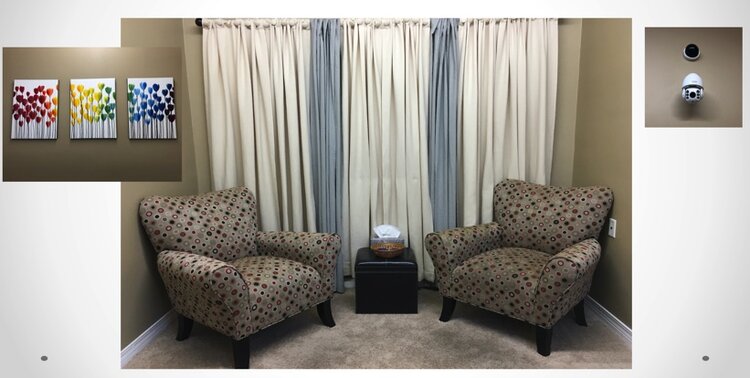It is important that your child know what to expect. Not knowing can create more unease. Tell your child that they are going to a safe place to speak with someone about what was reported. Give them permission to talk freely but do not rehearse or tell them what to say.
Forensic Interviews
Our highly trained Forensic Interviewers conduct legally sound, developmentally sensitive, digitally recorded interviews with children ages 2 -16 who have made an allegation of abuse or who have been a witness to a violent crime.
Interviews may only be scheduled by Law Enforcement or a Department of Child and Family Services (DCFS) worker after a minimal disclosure has been obtained.
What to Expect
You and your child will be welcomed into the Jefferson CAC’s family waiting room where a CAC staff member will help to assure that you and your child are comfortable and any general questions answered.
Once your child is settled in the waiting room, you will be asked to join the investigative team, comprised of Law Enforcement, Child Protection, if applicable, the Community Care Coordinator and Forensic Interviewer, in a separate conference room. During this time, you will have the opportunity to provide additional information, learn more about the interview process and ask questions. You will then return to the waiting room to reassure your child that the Jefferson CAC is a safe place, while the investigative team moves to the monitoring room.
Once the recording equipment is set, the forensic interviewer will return to the waiting room to escort your child to the “talking room.” At no time will a child be forced or coerced to do an interview.

While your child is speaking with the forensic interviewer, our Community Care Coordinator will meet with you to provide information on what to expect and provide information regarding counseling, medical and advocacy resources. Caregivers are expected to stay at the CAC for the entire appointment.
After the interview is complete, the investigative team will meet with you, answer questions and explain next steps. Unless told otherwise, you will then be free to leave.
It is important that the interviewer speak with your child alone. If your child has been abused, he or she may not want to talk about the details in front of you. If they disclose, it may be upsetting to you. The investigative team must be focused on the interview and your child. Therefore, you are not allowed to observe the interview.
Forensic interviews help to reduce the number of times your child will have to retell what happened to them, thereby minimizing the trauma of reliving the experience(s). Also, because forensic interviews are conducted in a non-leading, child-centered way, these recordings are an integral part of the investigative process and may be used in court proceedings.
